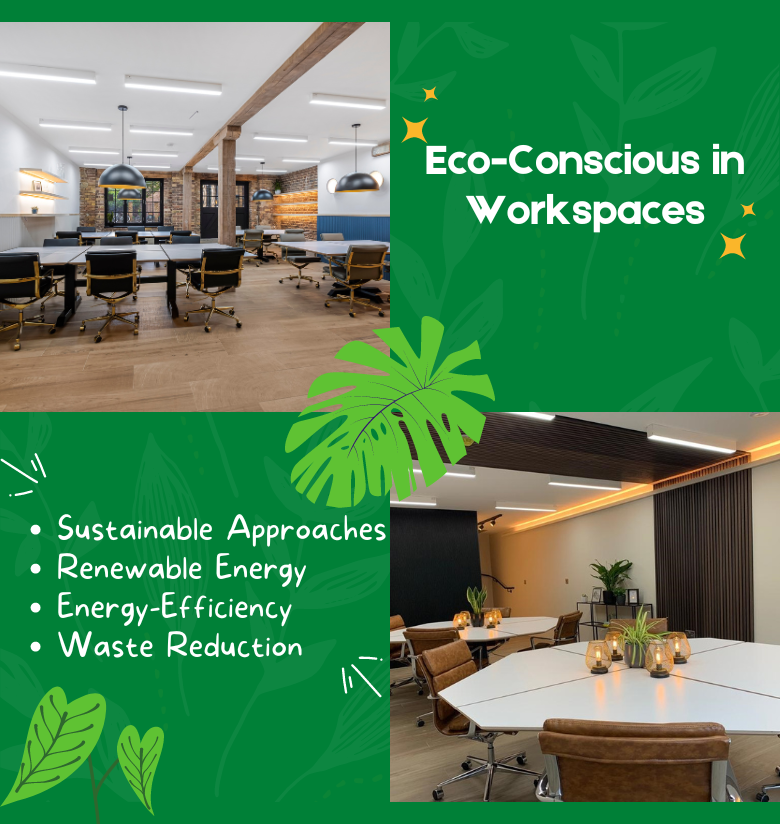In our quest for globalisation, we have experienced good things like urbanisation, economic integration, and cultural exchange but have also invited menaces like enhanced pollution and environmental adversities. In recent times, there’s been a notable shift towards how businesses operate with respect to their impact on our planet. In the UK, there has been a significant surge in awareness and support for sustainability, as seen through the record-breaking popularity of the term “sustainability”, according to Google Trends Data.
Driven by consumer demand, approximately 33% of the major companies in the UK pledged to reduce their carbon footprint by integrating sustainable practices into their business operations.
A Forbes study highlights a growing consumer preference for environmentally friendly products and services, leading businesses to adopt the use of sustainable materials, improve supply chain sustainability, and reduce waste. This shift is largely due to a growing awareness and concern for the environment.
In this article, we will learn about eco-consciousness and how companies are adopting it to make a greener world.
What is Eco Consciousness?

Eco-consciousness refers to an awareness and consideration of the environmental impact of one’s actions. It’s about recognising the importance of preserving our natural resources and ecosystems for future generations, influencing both individual behaviours and corporate policies towards sustainability.
What are the Pros and Cons of being Eco-conscious?
Pros:
- It improves brand reputation and customer loyalty.
- It leads to cost savings through efficient use of resources.
- It encourages innovation at work.
- It increases employee satisfaction and productivity.
Cons:
- Initial costs for implementing sustainable practices can be high.
- Requires a continuous commitment to maintain.
- Complex certification and compliance processes may be involved.
What is the difference between eco-consciousness and eco-friendly?
Here are the key differences between being eco-conscious and eco-friendly:
| Aspect |
Eco-consciousness |
Eco-friendly |
| Definition |
Awareness and consideration of environmental impacts in decisions. |
Products, services, or practices that do not harm the environment. |
| Focus |
Mindset prioritising sustainability and long-term planetary health. |
Outcomes of eco-conscious thinking, reflecting a commitment to reducing environmental impact. |
| Application |
Influences decision-making processes and policies towards sustainability. |
Specific solutions that minimise environmental harm. |
Modern workspaces are no longer limited to simply being functional and aesthetically pleasing; they are now evolving into eco-conscious environments, prioritising sustainability and environmental responsibility.
Why is Eco Consciousness Important for Businesses?
For businesses, being eco-conscious goes beyond environmental responsibility. It also aligns with consumer expectations, improves brand image, and often leads to cost savings through efficient resource use. Furthermore, it also encourages innovation, pushing companies to develop new, greener solutions and practices.
In offices across London, there has been a remarkable transformation towards eco-conscious workspaces. These spaces are designed with sustainability in mind, featuring energy-efficient systems, waste reduction programs, and sustainable material sourcing.
Why is there a need to be Eco-conscious in workspaces?
Eco-conscious workspaces contribute in combating climate change and help create a healthier environment for employees. They show a company’s commitment to both the planet and its workforce. This encourages a culture of responsibility and innovation. Here is how companies are adapting eco-consciousness:

-
From No Need for Green Initiatives to Sustainable Approaches
In traditional office setups, the focus was more on functionality and efficiency rather than sustainability. Our environment back then was not so affected. But now workplaces focus on implementing green initiatives such as recycling programmes and energy-efficient lighting. All modern workspaces are taking sustainability a step further by integrating eco-conscious principles into their design and construction. Green building certifications, such as BREEAM (Building Research Establishment Environmental Assessment Methodology), are becoming more prevalent, ensuring that workplaces are built with environmentally friendly materials and energy-efficient systems. This emphasis on sustainable design reduces the environmental impact and creates healthier and more productive work environments for employees.
-
The Emphasis on Renewable Energy
Before awareness about environmental degradation, the world relied heavily on fossil fuels for heating, cooling, and lighting. As the world becomes increasingly aware of the need to transition to renewable energy sources, modern workspaces are leading the way by adopting clean energy solutions. Solar panels, wind turbines, and geothermal systems are installed in and around modern office buildings to generate clean, renewable energy. Not only does this reduce reliance on fossil fuels, but it also contributes to a significant reduction in greenhouse gas emissions.
-
From Conventional Concrete Architecture to Biophilic Designs
For a long time, office spaces were closed with glass or wooden doors, with piles of files on each desk, artificial lights, and zero connection with nature. This type of monotonous structure led to low productivity, lethargy at work, and dissatisfied employees. Biophilic designs in modern workspaces have enhanced productivity, creativity, and satisfaction at work. Biophilic plans intelligently incorporate nature into workspaces by integrating natural light, water features, a view of nature, and many other elements. These designs promote a healthier work environment and foster a sense of connection to the natural world, reducing stress and boosting mental well-being. By embracing biophilic techniques, eco-conscious companies prioritise their employees’ holistic needs and cultivate spaces that inspire and rejuvenate.
-
Single Office Energy Consumption to Energy-Efficient coworking Spaces
The amount of energy consumed by ten companies in ten different buildings using kitchen appliances, lights, printers, and copiers is gigantic compared to ten offices using shared space and absorbing the same facilities. That’s the beauty of modern coworking spaces. It reduces overall energy consumption. Modern offices now prioritise energy efficiency through other means, like biophilic designs. Many of these spaces are designed with ample natural lighting, reducing the dependence on artificial lighting during daylight hours. Also, these offices incorporate energy-efficient appliances, smart thermostats, and lighting controls to conserve energy and lower greenhouse gas emissions further.
-
From Spacious Offices to coworking Spaces
Traditional offices often have excessive square footage, leading to wasted resources, higher energy consumption, and increased carbon footprint. Coworking spaces, on the other hand, emphasise efficient space utilisation. By providing shared desks, communal areas, and flexible arrangements, these workspaces optimise physical space usage, minimising the need for larger, underutilised offices. You will find many such sustainable workspaces in Bermondsey, London.
-
From Being Unaware to Careful Implementation of Waste Reduction
People three decades ago were less informed and aware than today. With recent eco-consciousness among people everywhere, modern workspaces value waste reduction and implement circular economy practises. It includes reducing single-use plastics, implementing recycling programmes, and promoting sustainable materials. Some companies even implement zero-waste initiatives, striving to send no waste to landfills. All these steps will help minimise waste generation, maximise resource efficiency, and promote the reuse and recycling of materials.
Sustainable Solutions For Businesses
Businesses can adopt several environmentally conscious processes, such as:
- Conducting energy audits to identify savings opportunities.
- Encouraging carpooling, cycling, or public transportation among employees.
- Using digital tools to reduce paper use.
- Implementing strict recycling and composting programs.
How GO Bermondsey Office Spaces Champion Eco-consciousness?
GO Bermondsey, located near London Bridge, places a premium focus on eco-consciousness, offering you office and coworking spaces designed with sustainability at their core. Our consciously designed workspaces not only foster collaboration and innovation but do so in an environmentally mindful manner. It’s all about supporting your modern, flexible work lifestyle in spaces that are not just functional but also designed to make a positive impact on the environment. Visit our website to book your private office or meeting rooms and be a part of a greener world.







